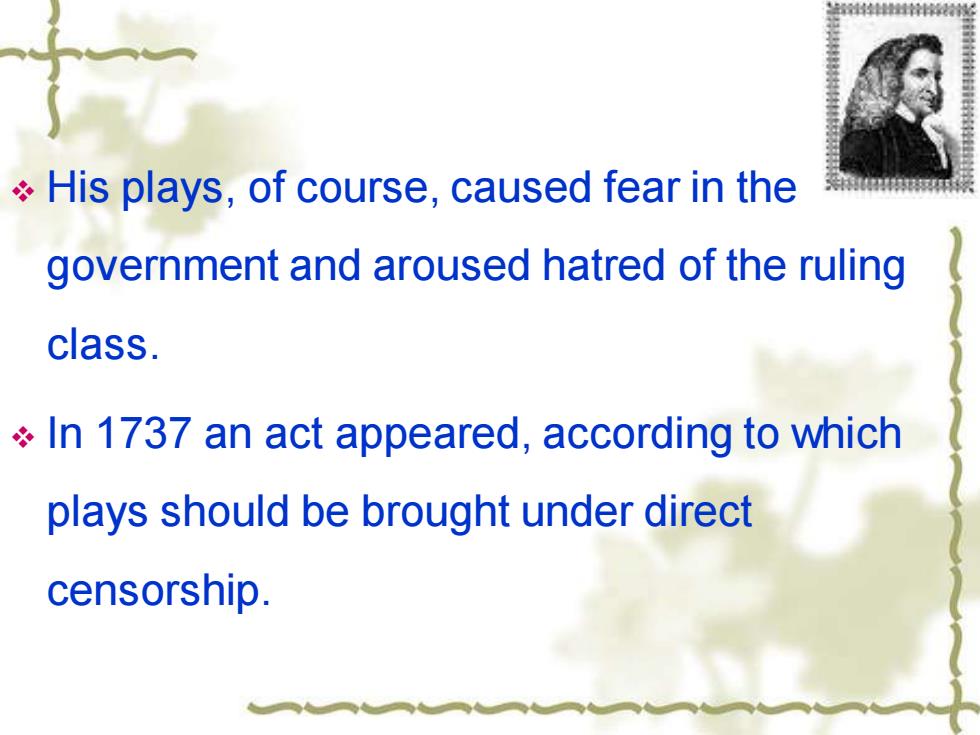
His plays,of course,caused fear in the government and aroused hatred of the ruling class. In 1737 an act appeared,according to which plays should be brought under direct censorship
❖ His plays, of course, caused fear in the government and aroused hatred of the ruling class. ❖ In 1737 an act appeared, according to which plays should be brought under direct censorship
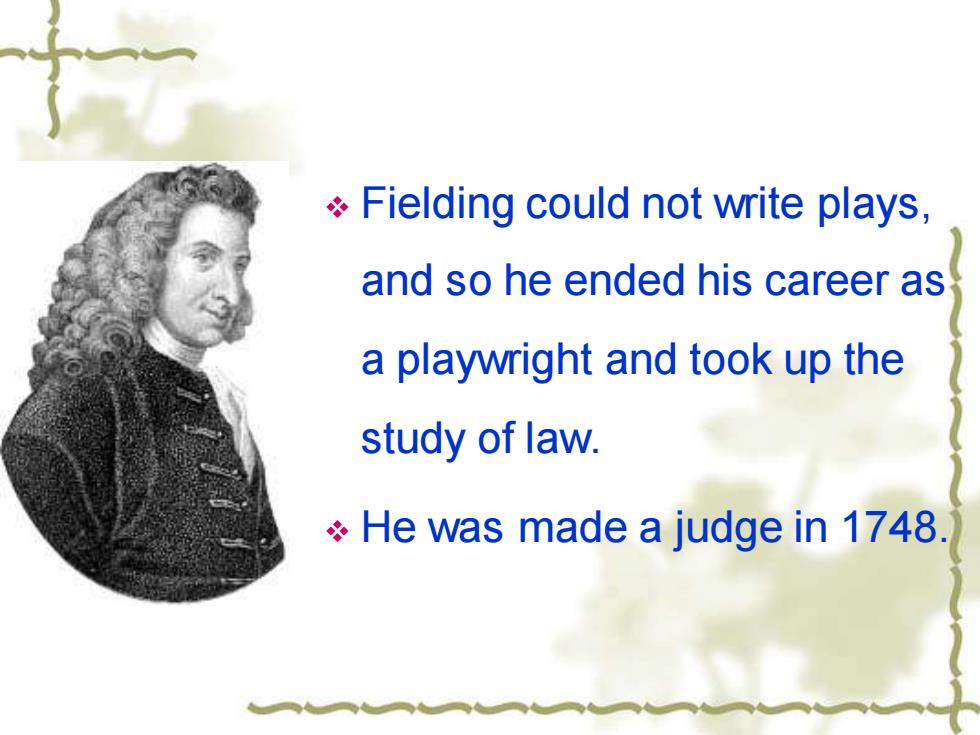
Fielding could not write plays, and so he ended his career as a playwright and took up the study of law. He was made a judge in 1748
❖ Fielding could not write plays, and so he ended his career as a playwright and took up the study of law. ❖ He was made a judge in 1748
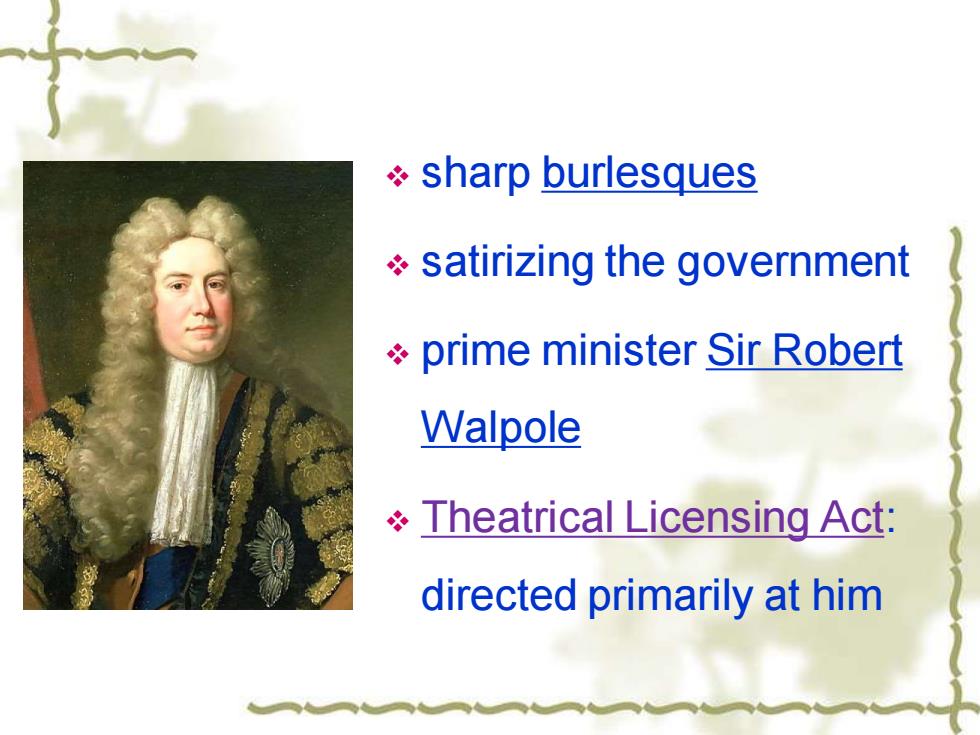
÷sharp burlesques satirizing the government prime minister Sir Robert Walpole Theatrical Licensing Act: directed primarily at him
❖ sharp burlesques ❖ satirizing the government ❖ prime minister Sir Robert Walpole ❖ Theatrical Licensing Act: directed primarily at him
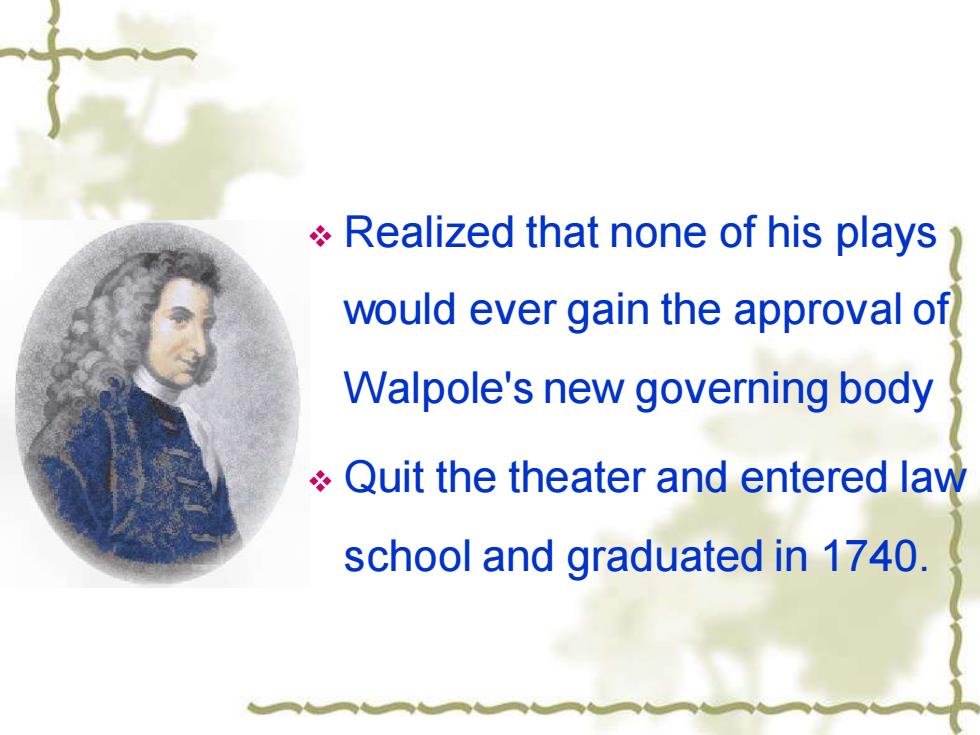
Realized that none of his plays would ever gain the approval of Walpole's new governing body Quit the theater and entered law school and graduated in 1740
❖ Realized that none of his plays would ever gain the approval of Walpole's new governing body ❖ Quit the theater and entered law school and graduated in 1740
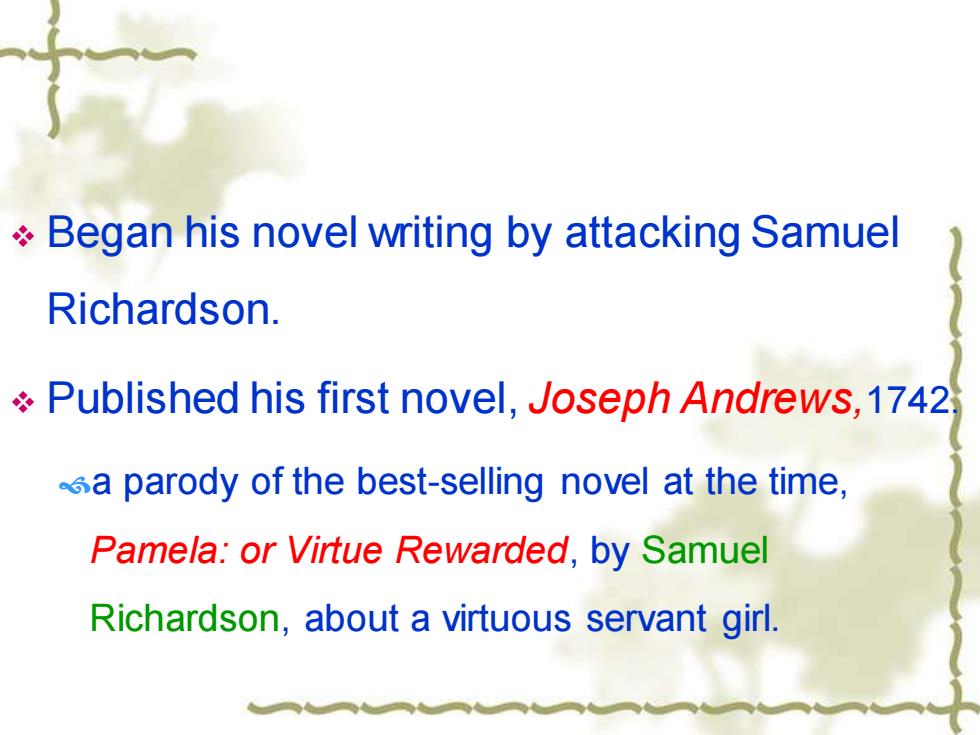
Began his novel writing by attacking Samuel Richardson. Published his first novel,Joseph Andrews,1742 a parody of the best-selling novel at the time, Pamela:or Virtue Rewarded,by Samuel Richardson,about a virtuous servant girl
❖ Began his novel writing by attacking Samuel Richardson. ❖ Published his first novel, Joseph Andrews,1742. a parody of the best-selling novel at the time, Pamela: or Virtue Rewarded, by Samuel Richardson, about a virtuous servant girl